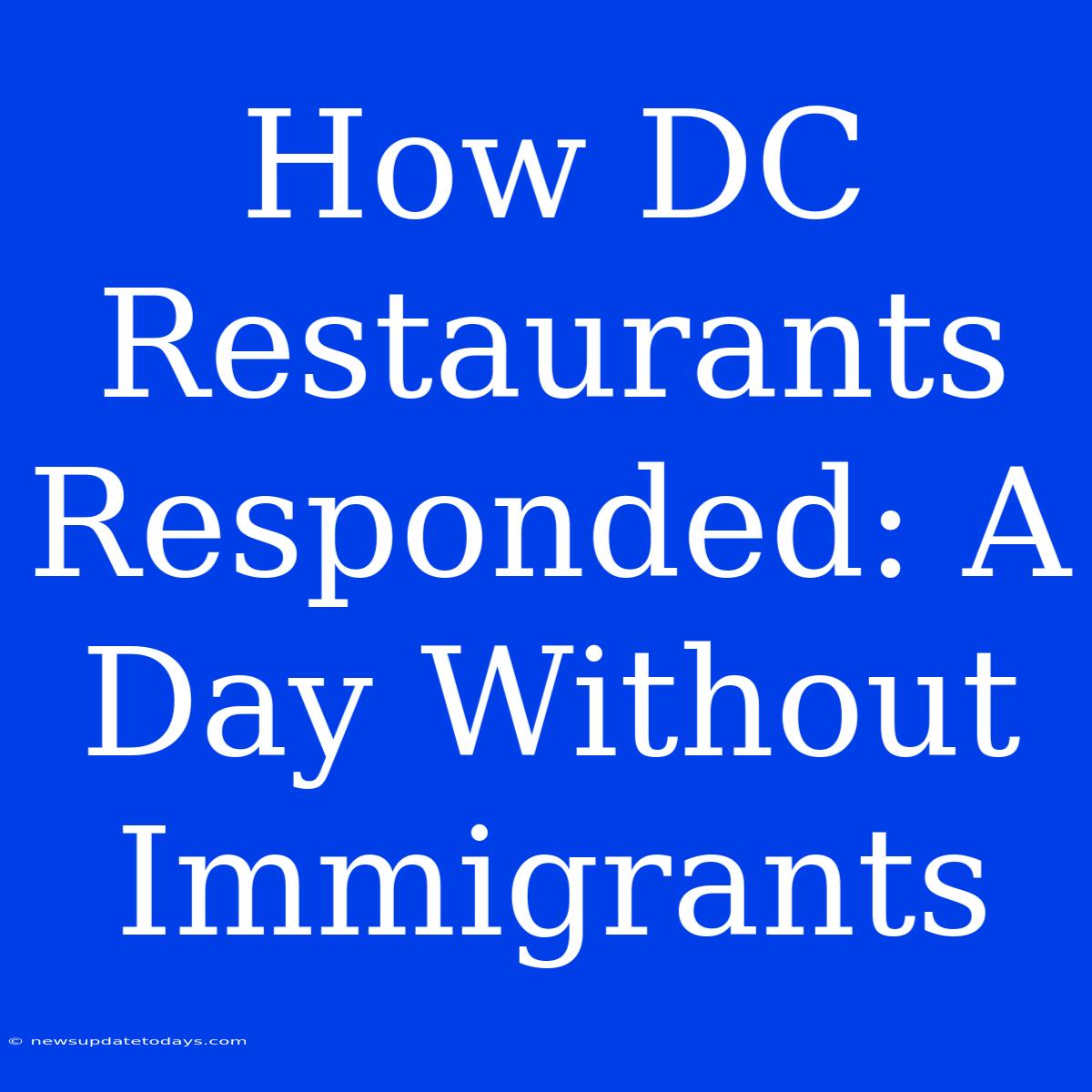How DC Restaurants Responded to "A Day Without Immigrants"
The "A Day Without Immigrants" demonstration in 2017 sparked a significant conversation about immigration's impact on various sectors, notably the restaurant industry. Washington D.C., with its diverse culinary scene, provided a compelling case study of how businesses navigated this complex issue. This article explores the varied responses of DC restaurants to the demonstration and the broader implications for the industry.
The Impact on DC's Restaurant Scene
"A Day Without Immigrants" aimed to highlight the contributions of immigrants to the American economy by demonstrating their absence. For the restaurant industry in DC, heavily reliant on immigrant labor, this meant facing a potentially significant disruption. Many restaurants, particularly those relying on Latino workers, anticipated reduced staffing and operational challenges.
Diverse Responses: From Closure to Solidarity
The responses from DC restaurants were far from uniform. Some establishments chose to close their doors for the day, acknowledging the vital role immigrant workers played in their operations and using the day as an opportunity to express solidarity with the immigrant community. This action served not only as a powerful statement but also allowed for reflection and internal discussions about fair labor practices and the value of their diverse workforce.
Other restaurants remained open, but faced challenges due to staff shortages. These establishments often highlighted the impact of the demonstration on their operations, inadvertently showcasing the critical contribution of immigrant workers. This unplanned demonstration served as a powerful, albeit unintended, illustration of labor dependency within the industry.
Beyond the Demonstration: Long-Term Impacts
The "A Day Without Immigrants" demonstration wasn't just a one-day event; it sparked a longer-term conversation within the DC restaurant community. Many restaurants used the experience as a catalyst to reassess their hiring practices, employee benefits, and community engagement. This included:
- Increased appreciation for immigrant workers: Many owners publicly acknowledged their dependence on immigrant workers and the significant value they bring to their businesses.
- Improved labor practices: Some restaurants reviewed their wages, benefits, and working conditions, striving to create a more equitable and supportive work environment for all employees.
- Community engagement: Several restaurants sought to strengthen their relationships with the surrounding community, particularly the immigrant community, through various initiatives.
The Bigger Picture: Immigration and the Restaurant Industry
The experiences of DC restaurants during "A Day Without Immigrants" highlighted the crucial role immigrant workers play in the American culinary landscape. These workers often fill critical roles, from kitchen staff to front-of-house personnel, impacting the overall success and vibrancy of the industry. The demonstration served as a stark reminder of the economic and social contributions of immigrants and the need for fair and equitable immigration policies.
Conclusion: A Catalyst for Change?
"A Day Without Immigrants" presented a significant challenge to DC's restaurant industry. While the responses were varied, the event ultimately prompted reflection, discussion, and, in some cases, positive change within the industry. It reinforced the vital role of immigrant workers and underscored the need for a more inclusive and supportive environment for all members of the restaurant community. The long-term impact of the demonstration continues to shape discussions about immigration, labor practices, and the future of the restaurant industry in DC and beyond.

